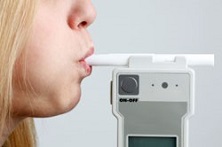|
page 3 of 11
Drugs

Driving while being on medication or other drugs can drastically affect one’s driving. When taking a certain prescription medication, always keep in mind that common side effects, such as drowsiness and dizziness, and slowed reaction time can be a great drawback to safe driving. So, try to avoid driving, if any of those side effects are present.
Non-prescribed drugs are also known as illegal drugs. Such drugs can greatly impair your thinking and driving abilities.
Stimulants
These types of drugs increase heart rate, breathing rate, and other bodily functions and can damage the organs they affect. If a drug user has some medical problems, by taking stimulants, an organ failure can occur, such as heart attack.
The following names describe stimulants: "uppers", "speed", "crank", and "ice", "meth", "glass.
Examples of stimulants are: amphetamines, diet pills, cocaine, caffeine, and nicotine.
Forms of stimulants are: pills, tablets, powder, and tiny chunks.
How stimulants are used: swallowed, injected, inhaled, and smoked.
Depressants
These are drugs that slow bodily functions down, like brain or heart activity. Certain depressant drugs can be prescribed or administered at hospitals, such as the ones used for insomnia. Other drugs can only be obtained illegally.
Names for depressants: "downers", "ludes", "reds", "barbs".
Examples of depressants: "barbiturates, tranquilizers, sedatives.
Forms of depressants: pills, capsules.
Depressants are nearly always swallowed.
Hallucinogens
These are drugs that cause hallucinations. A hallucination is a sensory experience of something that does not exist outside the mind. In general, hallucinations intensify whatever mood the user is in when the drug is taken.
Narcotics
If prescribed, these drugs are to be used to relieve anxiety and pain. Otherwise, if obtained without medical authorization and supervision, they could endanger your life.
Overall, the drugs mentioned above can be a potential danger to your health. Operating a motor vehicle and being drug-impaired could lead to fatal results.
Marijuana Law
California's impaired-driving laws
specifically prohibit the drinking of any alcoholic beverage or the
smoking or other ingestion of marijuana or any marijuana product while
driving, or while riding as a passenger in, a motor vehicle. Moreover,
the law forbids a person from having in their possession, while driving,
any receptacle containing an alcoholic beverage which has been opened or
has a seal broken, or the contents of which have been partially removed.
Likewise, a person may not have in their possession, while driving, any
receptacle containing cannabis or cannabis products which has been opened
or has a seal broken, or a loose cannabis flower not in a container
(unless these are in the trunk of the vehicle); and it is illegal for
someone to consume any cannabis or cannabis product while riding as a
passenger in a bus, limousine, taxi, pedicab, housecar, or camper,
though passengers in any of these vehicles are able to drink alcoholic
beverages.
Synergistic Effect
Synergistic Effect is an increased effect that results from mixing drugs and alcohol. It has long been known that substance abuse often leads to violent behavior. A study showed that those who abuse alcohol and drugs are about 12 times more likely to be murdered and 16 times more likely to commit suicide than non-abusers. There are examples such as rock star Kurt Cobain and R&B singer Marvin Gaye, who died violent deaths associated with alcohol abuse and the use of illicit drugs. And the sad part is that the violence doesn’t end with the abuser. It extends beyond to other members of the household. Given the synergistic effect of drugs and alcohol as reported in the study, the researchers argue that the concept of who is at risk should be broadened to include not only substance abusers but also others in the home.
Implied Consent

California’s "implied consent" law states that if you are lawfully arrested by an officer who has probable cause to believe that you have been driving under the influence, then you consent to taking a chemical test of your blood or breath for the purpose of determining your Blood Alcohol Concentration(BAC).
As a matter of fact, upon signing an original or renewal application for a driver’s license, a licensee gives his/her implied consent to submit to any tests deemed necessary in order to determine the presence of intoxicating substances in his/her body. The test must be taken at the time of your arrest, and the officer should give you the choice between a blood or breath test. If neither blood nor breath tests are available, then you are required to take the urine test. People taking anticoagulants for a heart condition or who have hemophilia are exempt from blood test under this California law.
If you are arrested, the officer should tell you that if you refuse to take the test, you will be fined, will lose your license, and may be sent to jail if you are later convicted of a DUI. Also, the officer shall advise you that you don’t have the right to speak to an attorney about whether you should take the test, and in fact, your refusal can be used against you in a court of law.
|








